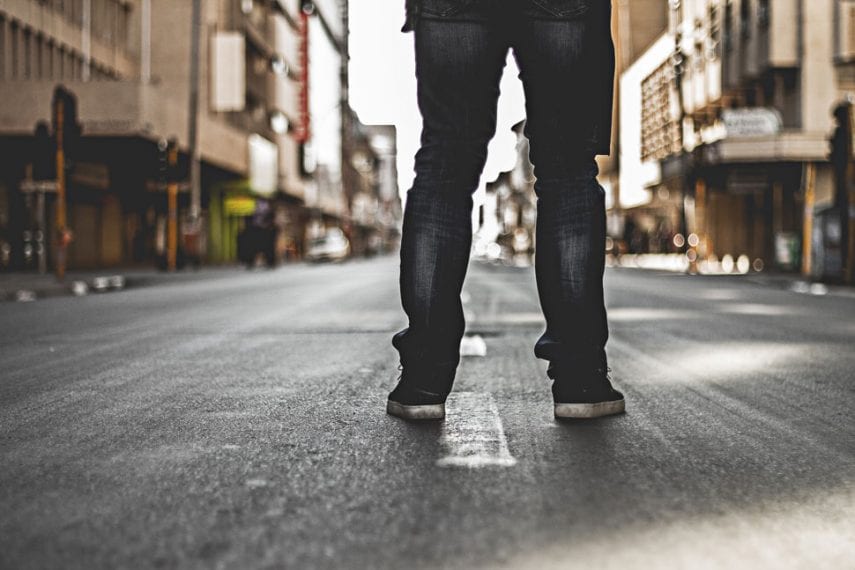How Relapse Can Be Used as a Learning Experience to Support Addiction Treatment

Relapse is a process that too often causes intense shame that can act as a huge barrier to recovery. But by understanding that it is not a failure, we can learn from relapse and realize that recovery is a lifelong journey that is much easier when we understand how to turn the negativity encountered along the way into positivity.
“I understood, through rehab, things about creating characters,” said actor Samuel L. Jackson, a former alcoholic and drug addict. “I understood that creating whole people means knowing where we come from, how we can make a mistake and how we overcome things to make ourselves stronger.”
Recovery is a process that hinges largely on how we handle the situations that we are placed in—the obstacles we’re faced with, the missteps that we make, and the ways that we overcome them and piece ourselves back together for the better. Relapse is the same way. It’s not something to feel guilty about or ashamed of—it’s just another obstacle to overcome, an experience that will help you grow stronger along the way. If you’ve recently relapsed, don’t let your instinctual feelings of shame and guilt overcome you. Focus instead on what you can learn from it, and remember: there’s always hope for recovery.
Why Relapse Is Not a Failure
Addiction changes the way that your brain works—it is a chronic disease, just like diabetes, arthritis, and obesity. And yet, because of the stigma surrounding addiction, many people suffering from substance abuse disorders still feel intense shame when they experience a relapse, as if it was caused by some personality flaw of their own, rather than rooted in chemistry.
But just as we wouldn’t castigate a cancer patient for needing another round of chemotherapy, we mustn’t paint relapse as something that people living with addiction should be ashamed of.
Relapse isn’t failure—it’s simply a bump in the road to recovery. The most important thing is that you use your relapse as a learning experience to give you the drive and direction needed to complete your treatment.
Hope is Just a Phone Call Away
866-922-1350Learning from Your Relapse
Falling back into addiction, even briefly, can be deeply disheartening, and you may even consider giving up on recovery altogether. But don’t give up hope yet—instead, try to see your relapse as an opportunity to get yourself back on track and become a better and stronger person for it. That’s not to say that relapse is good, per se, but just like any negative situation in your life, with the right outlook, there’s always a silver lining.
- Shedding light on triggers. When you fall back into substance use, you have a chance to examine what drives your addiction. Maybe your relapse was a response to emotions that arose from a turbulent family fight, or perhaps you were out with people that you used to use with. Identifying triggers can help you find better ways of coping with or avoiding them in the future, which in turn helps you make better choices and progress more smoothly toward recovery, and with a more optimistic, future-focused outlook on life.
- Motivation to seek further support. Once you’ve learned more about the triggers and roots of your addiction, you can focus on how to better deal with them. If you’re struggling to do this on your own, residential treatment programs offer unique relapse prevention plans that can provide you with the coping mechanisms and support necessary to deal with your triggers. This support can aid your recovery, helping you recreate yourself for the better and give yourself an environment that is conducive to continued sobriety.
- Gaining perspective and renewed conviction. The road to recovery is a lifelong pursuit, but sometimes it can be easy to forget that. Each day requires a renewed commitment to sobriety, and getting too comfortable may make you forget how hard you need to fight. Use relapse as a reminder that your journey will be a lifelong one—there are many twists and turns in the path, but so long as you keep walking it, it will get easier, and you will make progress.You will always be an addict in recovery, and your addiction will always be there—your sobriety is a daily renewed conviction, a daily decision to walk that path.
Turning Negativity into Positivity
The road to recovery isn’t an easy one and expands far past the reaches of your therapy sessions. If you’ve just relapsed, whether you’re trying to quit on your own, with a support group, or in residential treatment, it’s not the end—you are still on your journey to recovery. Use your relapse as an experience for renewing your focus and moving forward with a more thorough grasp of your weaknesses and the way that they are linked to your addiction, and maybe even as a push in the direction of a treatment program that can offer more help. Relapse doesn’t reset the recovery process and throw you back to square one—it’s a detour, a temporary pause that can give you more insight about yourself and the ways that you can strengthen your resolve in the face of addiction.
Alta Mira offers comprehensive rehabilitation programs for people suffering from all kinds of addictions. Contact us today to learn more about how you can overcome your addictions and learn to harness each relapse as a positive step forward.






